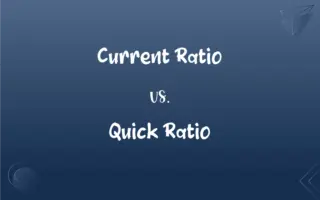Lighted vs. Lit: What's the Difference?
Edited by Janet White || By Harlon Moss || Updated on October 27, 2023
"Lighted" and "lit" both mean to set on fire or illuminate, but "lit" is often preferred for its brevity and poetic feel.

Key Differences
"Lighted" and "lit" are both past tense and past participle forms of the verb "light." Both words are used to describe something being illuminated or set on fire.
"Lighted" can sometimes feel more formal or archaic. In contrast, "lit" is often preferred for its conciseness and is more commonly used in everyday language and literature.
Both "lighted" and "lit" are grammatically correct and interchangeable in most contexts. However, some idiomatic expressions tend to favor one over the other.
In literature, "lit" is frequently used for its rhythmic quality and brevity. "Lighted," on the other hand, might be used for emphasis or stylistic reasons.
While "lit" is more popular in current usage, "lighted" still finds its place in certain phrases and contexts, retaining its validity and relevance in the English language.
ADVERTISEMENT
Comparison Chart
Usage Frequency
Less common
More common
Connotation
Sometimes formal or archaic
More modern, concise
Preferred in
Formal writing, certain phrases
Everyday language, literature
Syllable Count
Two syllables
One syllable
Rhythmic Quality
Less rhythmic
More rhythmic
ADVERTISEMENT
Lighted and Lit Definitions
Lighted
Provided with light.
The stage was lighted brilliantly.
Lit
Illuminated.
The candles lit the room softly.
Lighted
Set on fire.
He lighted the bonfire.
Lit
Ignited or sparked.
The sparklers lit up the night.
Lighted
Made brighter.
The room was lighted by the morning sun.
Lit
Set on fire.
She lit the match effortlessly.
Lighted
Illuminated.
The path was lighted by lanterns.
Lit
Made brighter.
The stars lit the night sky.
Lighted
Guided or directed.
His face lighted up with joy.
Lit
Animated or enlivened.
His eyes lit up with excitement.
Lighted
Electromagnetic radiation that is visible, perceivable by the normal human eye as colors between red and violet, having frequencies between 400 terahertz and 790 terahertz and wavelengths between 750 nanometers and 380 nanometers. Also called visible light.
Lit
A past tense and a past participle of light1. See Usage Note at light1.
FAQs
Is "lit" used more in everyday speech?
Yes, "lit" is more common in casual language.
Is "lit" more popular in modern language?
Yes, "lit" is more commonly used today.
Is "lighted" still used today?
Yes, though less common, it's still used.
Is "lighted" commonly used in historical texts?
Yes, it's more common in older texts.
Can "lighted" and "lit" be used interchangeably?
In most contexts, yes, they are interchangeable.
Is "lighted" considered formal?
It can feel more formal or archaic.
Is "lit" acceptable in formal writing?
Yes, it's acceptable in most contexts.
What does "lighted" mean?
It means to illuminate or set on fire.
What does "lit" mean?
Similar to "lighted," it means to make bright or ignite.
Are there idioms that specifically use "lit"?
Yes, some expressions favor "lit."
Which word is more versatile, "lighted" or "lit"?
"Lit" is often considered more versatile.
Does "lighted" have a rhythmic advantage in poetry?
Not usually; "lit" is often preferred for rhythm.
Do "lighted" and "lit" have the same syllable count?
No, "lighted" has two, and "lit" has one.
Is "lighted" ever preferred for clarity?
In certain contexts, it might be preferred for emphasis.
Does "lit" have any slang connotations?
In modern slang, "lit" can mean exciting or excellent.
Does "lit" have a different connotation than "lighted"?
"Lit" often feels more modern and concise.
Which is preferred in literature, "lighted" or "lit"?
"Lit" is often preferred for its brevity.
Are there idioms that specifically use "lighted"?
Yes, some phrases traditionally use "lighted."
Can "lit" convey a sense of excitement?
Yes, especially in modern usage and slang.
Can "lighted" be used in a poetic sense?
Yes, it can be used for stylistic reasons.
About Author
Written by
Harlon MossHarlon is a seasoned quality moderator and accomplished content writer for Difference Wiki. An alumnus of the prestigious University of California, he earned his degree in Computer Science. Leveraging his academic background, Harlon brings a meticulous and informed perspective to his work, ensuring content accuracy and excellence.
Edited by
Janet WhiteJanet White has been an esteemed writer and blogger for Difference Wiki. Holding a Master's degree in Science and Medical Journalism from the prestigious Boston University, she has consistently demonstrated her expertise and passion for her field. When she's not immersed in her work, Janet relishes her time exercising, delving into a good book, and cherishing moments with friends and family.






































































